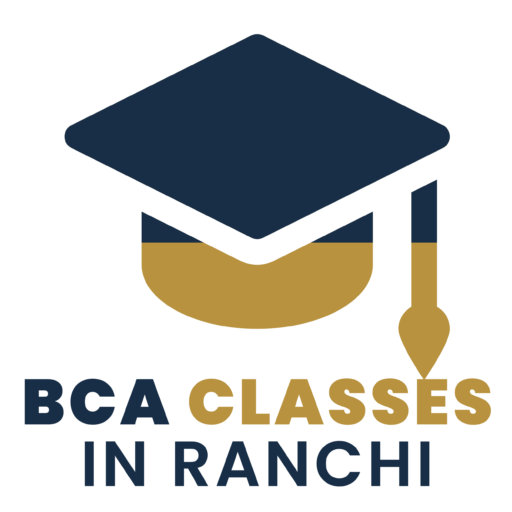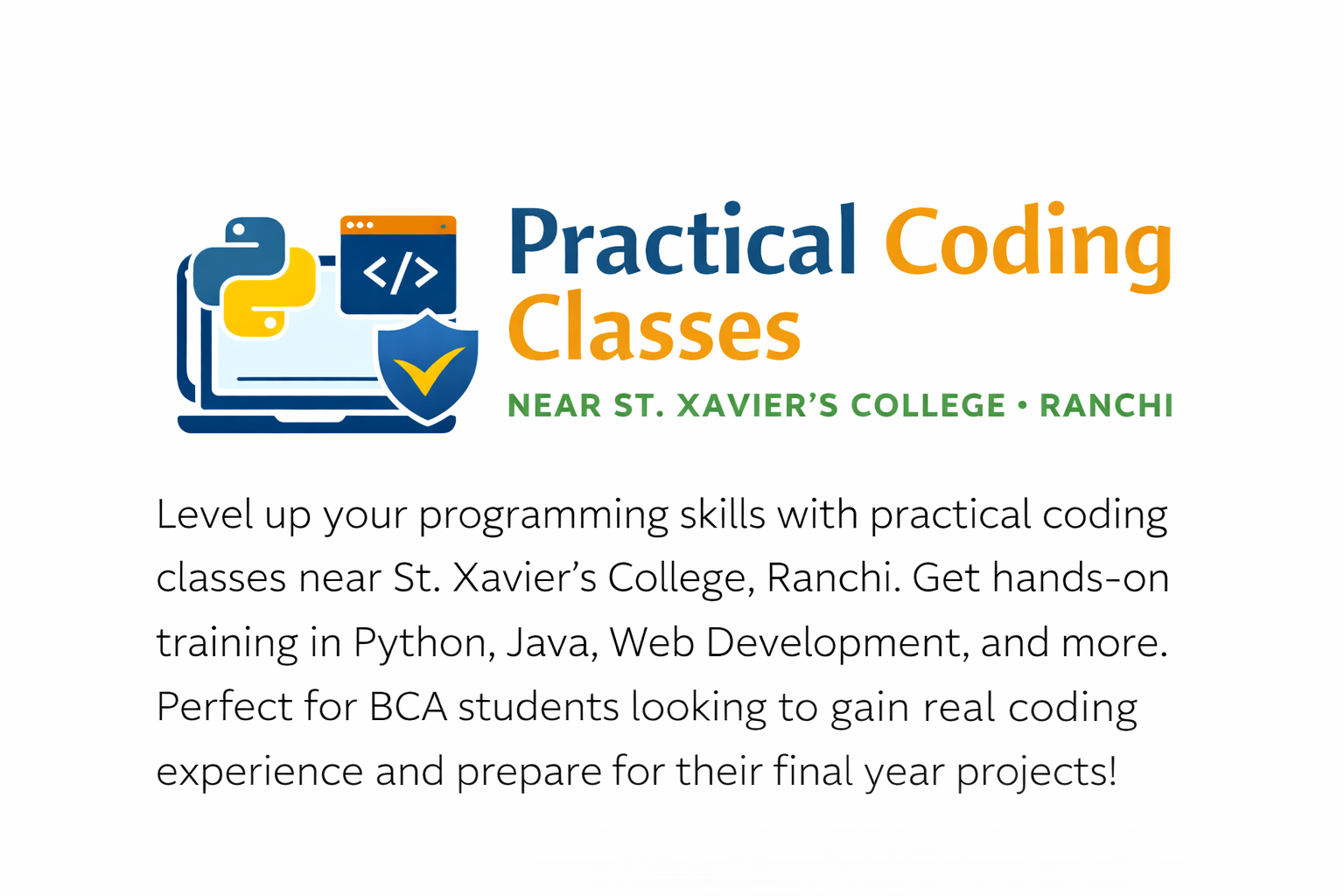Introduction to BCA: Understanding the Course
The Bachelor of Computer Applications (BCA) is a premier undergraduate degree program that primarily focuses on equipping students with the necessary skills and knowledge in the field of computer applications. This course has gained significant importance in the current digital age as it aims to develop a robust foundation for aspiring IT professionals, allowing them to adapt to the rapidly evolving technology landscape. The BCA program covers an extensive array of topics that include programming, database management, web development, and more, ensuring that graduates are well-prepared for various challenges in the tech industry.
One of the critical aspects of the BCA program is its emphasis on practical learning. Throughout the course, students are exposed to a variety of practical assignments and projects, which enhance their problem-solving skills and provide them with hands-on experience. This emphasis on experiential learning is particularly valuable, as it empowers students to bridge the gap between theoretical knowledge and real-world applications. Additionally, the inclusion of programming languages, software engineering concepts, and system design further equips students with essential technical skills needed for various roles in the IT sector.
The course structure is designed to foster creativity and innovation, encouraging students to think critically and work collaboratively on projects. Graduates of the BCA program can expect to find a diverse range of career opportunities in sectors such as software development, web design, and IT consultancy, among others. The demand for skilled computer application professionals continues to rise, largely due to the increasing integration of technology in business operations and everyday life. By undertaking a BCA program, students not only position themselves to enter the workforce but also become part of a thriving community of tech innovators and leaders.
Overview of First Year Subjects in BCA
The Bachelor of Computer Applications (BCA) program is designed to equip students with essential knowledge and skills pertinent to the field of computer applications. In the first year, students are introduced to a variety of core subjects that lay the groundwork for advanced studies and professional development. Each subject plays a crucial role in building a comprehensive understanding of both theoretical and practical aspects of computer science.
One of the fundamental subjects offered is Programming in C. This subject serves as a foundation for learning programming languages, focusing on the C language, which is widely recognized for its efficiency and versatility. Through this course, students learn critical programming concepts, including data types, control structures, functions, and file handling. Mastery of these fundamentals is essential, as they are applicable to various programming languages and software development practices.
Another key subject is Computer Organization, which provides insights into the hardware components and architectures of computers. This course introduces students to the structure and operation of computer systems, detailing how hardware and software interact. Concepts such as binary systems, data representation, and memory hierarchies are explored, fostering a deeper engagement with how computers process information.
Discrete Mathematics is also a core subject that supplements the quantitative reasoning required in computer science. It covers essential mathematical concepts such as logic, set theory, relations, and functions. Students develop problem-solving skills and learn to apply mathematical reasoning to computer science problems, which is vital for understanding algorithms and data structures.
Overall, the first-year curriculum in BCA is meticulously structured to ensure that students gain a solid foundation in essential areas of computing. These subjects not only interconnect but also form the building blocks for more advanced topics in subsequent years, shaping a well-rounded educational path in computer applications.

Effective Study Notes for BCA First Year Subjects
Creating effective study notes is a crucial component of academic success, particularly for students pursuing a Bachelor of Computer Applications (BCA) in their first year. A well-organized set of notes not only facilitates better understanding but also aids in efficient revision. One of the key strategies in developing effective study notes is to adopt a structured approach. Begin by organizing notes by subject and topic, ensuring that each set of notes is coherent and logically arranged.
Utilizing various tools can enhance the note-taking process. Digital tools such as Evernote, Microsoft OneNote, and Google Docs provide excellent platforms for organizing notes, which can be accessed from multiple devices. These applications come with features like tagging and search capabilities, making it easier to locate specific information quickly. Additionally, integrating visual aids such as charts, graphs, and diagrams can significantly improve retention, especially for complex subjects like Database Management Systems.
When creating notes, it is essential to capture fundamental concepts and definitions, particularly in critical subjects like Web Technologies. For instance, students should take detailed notes on topics such as HTML, CSS, and JavaScript, including examples of code snippets. This practical application will help cement their knowledge and facilitate hands-on learning. Students should also emphasize key terms and summarize important points at the end of each topic for quick revision before exams.
Moreover, incorporating peer discussions into the note-taking process can further enhance understanding. By sharing and comparing notes with classmates, students can gain different perspectives on challenging topics. Utilizing these collaborative efforts not only enriches the study experience but also nurtures a supportive learning environment. Therefore, a combination of structured organization, modern tools, visual aids, and collaborative learning can significantly enhance the effectiveness of study notes for BCA first-year subjects.
Resources for BCA First Year Students
For students embarking on their Bachelor of Computer Applications (BCA) journey, access to the right resources can significantly enhance their academic experience and understanding of the coursework. First-year BCA subjects typically include foundational topics such as programming, mathematics, and computer fundamentals. To aid in mastering these subjects, various materials are available that cater to different learning styles.
Textbooks remain a cornerstone of educational resources. Some highly recommended titles for BCA first-year students include “Programming in C” by Reema Thareja, which delivers a solid grounding in programming concepts, and “Computer Fundamentals” by P.K. Sinha, covering key computer science principles. These texts provide comprehensive coverage of the curriculum and are often supplemented with exercises that encourage practical application of theoretical concepts.
In addition to textbooks, online platforms offer a myriad of resources. Websites such as Coursera, Udemy, and edX provide access to excellent tutorials and courses specifically tailored to the subjects encountered in the BCA first year. These platforms often feature video lectures, quizzes, and community support, making them ideal for self-paced learning. Engaging with these online resources can deepen understanding and provide alternative explanations that may resonate better than traditional methods.
Peer support is another invaluable resource for BCA first-year students. Online forums such as Stack Overflow and Reddit have dedicated sections for computer science students where they can ask questions, share knowledge, and collaborate. Engaging in discussions with fellow students can help clarify confusing topics and foster a sense of community.
Conclusion
Lastly, supplementing core materials with videos and practice problems is essential. Many students benefit from watching instructional videos on platforms like YouTube, where complex subjects are broken down visually. This, combined with hands-on practice, is vital in cementing knowledge and enhancing problem-solving abilities.
Read Our Latest Blog
A Day in the Life of a BCA Student
Phone Number: +91-7488456170
Email ID: abhishek@eepl.me
Our Platforms:
Digilearn Cloud
EEPL Test
Live Emancipation
Follow Us on Social Media:
Instagram – EEPL Classroom
Facebook – EEPL Classroom
Stay connected and keep learning with EEPL Classroom !









